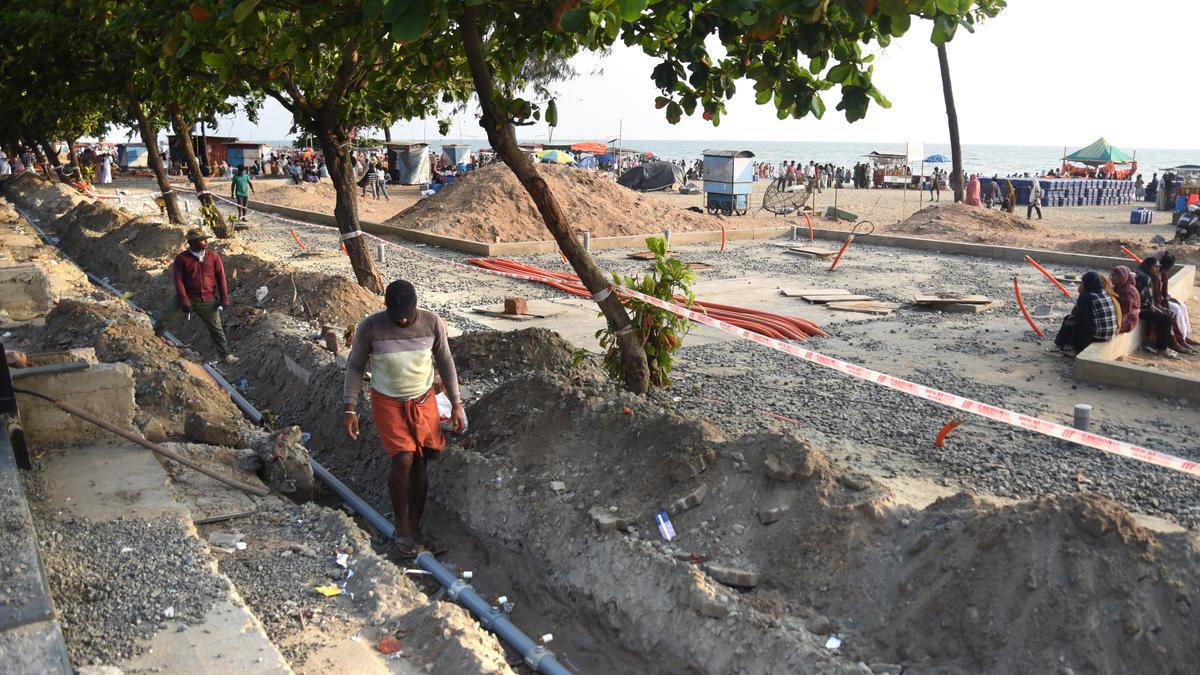Kozhikode to Get 16 Designated Street Vending Zones
National NationalPosted by AI on 2025-04-19 22:33:17 | Last Updated by AI on 2025-08-02 12:16:26
Share: Facebook | Twitter | Whatsapp | Linkedin Visits: 5

Will designated vending zones transform Kozhikode's bustling street food scene? Minister for Local Self-Governance M.B. Rajesh inaugurated the distribution of identity cards to street vendors in Kozhikode, marking a significant step towards the establishment of 16 organized street vending zones within the city. This initiative aims to both formalize the informal sector and enhance the city's urban landscape.
The distribution of identity cards represents the culmination of a concerted effort to regulate and support street vendors. The initiative provides vendors with a recognized legal status, offering them much-needed security and legitimacy. This move is expected to empower street vendors to operate without fear of displacement and harassment, allowing them to contribute more effectively to the local economy. The designated vending zones promise to decongest crowded areas while ensuring hygiene and accessibility for customers. These zones will be strategically located throughout Kozhikode to ensure equitable distribution and maximize vendor visibility and customer access.
The project represents a collaborative approach between the government and local stakeholders. The establishment of these zones required extensive planning, involving consultations with vendor associations and city officials. The project aims to strike a balance between accommodating the needs of street vendors and maintaining the aesthetic appeal of the city. The initiative reflects the government's commitment to promoting inclusive urban development and supporting small-scale entrepreneurship. It is seen as a key step in creating a more organized and sustainable street vending ecosystem.
The formalization of street vending offers a range of benefits, not just for vendors but for the city as a whole. By providing a structured environment, the city hopes to improve hygiene standards, reduce traffic congestion in key areas, and create a more vibrant and appealing urban space. The move towards regulated vending is also expected to contribute to increased tax revenue and facilitate better urban planning in the long run.
The success of this initiative will depend on the effective implementation and ongoing monitoring of the designated zones. The city plans to provide essential amenities within these zones, including access to water and sanitation facilities. Continuous engagement with vendors and regular inspections will be crucial to ensure the long-term viability and sustainability of the project. This project is viewed as a pilot, and its success could pave the way for similar initiatives in other cities across the state. It promises to be a significant step towards creating more inclusive and vibrant urban spaces in Kerala.
Search
Categories
- Sports
- Business
- History
- Politics
- International
- Science & Technology
- Social Issues
- Disaster Management
- Current Affairs
- Education
- Startup Business
- Startup News
- Awards
- Community Services
- Fundraising Events
- Volunteer Services
- Health Initiatives
- Innovations and Initiatives
- In News
- dummybanners
- Awards
- Partners
- Products
- Press Releases
- News
- Fast Check
- South
- సినిమా
- Gallery
- Sunday Chronicle
- Hyderabad Chronicle
- లైఫ్ స్టైల్
- National
- క్రైం
- ట్రెండింగ్
- జాబ్స్
- అంతర్జాతీయo
- బిజినెస్
- రాజకీయం
- బిజినెస్
- సంపాదకీయం
- నవ్య
- చిత్ర జ్యోతి
- క్రీడలు
- జాతీయం
- తెలంగాణ
- తాజా వార్తలు
- మన పార్టీ
- మన నాయకత్వం
- మన విజయాలు
- డౌన్లోడ్స్
- మీడియా వనరులు
- కార్యకర్తలు
- North East Skill Center News
- Government Schemes
- Entrepreneurship Support
- Employment Opportunities
- Skill Training Programs
- Departments
- Investments
- Initiatives
- Resources
- Telangana IT Parks
- Events & Jobs
- Press Releases
- News
- Airport News
- Newtons Laws of Motion
- Karbonn in Business
- Investments in Karbonn
- Company quarterly sales
- Markets
- Auto News
- Industry
- Money
- Advertisements
- Stock target
- Company Updates
- Stock Market
- Company Sales
- Staffing and HR
- Constituency Assembly
- General News
- Srikalahasti Temple
- Bojjala Sudhir Reddy
- Technology & Innovation
- Sports
- Business
- Products
- Industries
- Services & Trainings
- Tools & Resources
- Technology Integration
- Drug Seizures & Arrests
- Telangana Narcotics
- Law & Enforcement
- Rehabilitation
- Nationwide Drug Policing
- Nigeria Seizures
- Global Operations
- Drug Awareness
- Drug Enforcement Tech
- NCB Drug Seizures
- Judicial Crackdown
- India's Surveillance Tools
- Cross-Border Links
- Women Safety
- Cyber Crimes
- Drug Abuse
- Traffic & Road Safety
- Community Connect
- Public Safety Alerts
- Citizen Assistance
- Nellore City News
- Politics & Administration
- Events & Festivals
- Agriculture & Rural
- Business & Economy
- Health & Wellness
Recent News
- Oppo's Innovative Cooling Technology Coming to India with K13 Turbo Series
- Pakistan, Afghanistan & UAE To Play T20I Tri-Series In Sharjah Prior To Asia Cup
- India Vs England 5th Test Day 2 Weather Forecast: Will Rain Delay The Match?
- Surprise Choice! Shardul Thakur Appointed New West Zone Captain
- Boxing Federation Of India Elections Set For August 21
- 'Force Majeure Pause': Odisha FC Suspend Players, Staff Contracts Amid ISL 2025/26 Limbo
- Manchester United Make Enquiry For Manchester City Goalkeeper Stefan Ortega
- Prajwal Revanna's Leaked Videos: Rape Case and 2,000 Obscene Clips